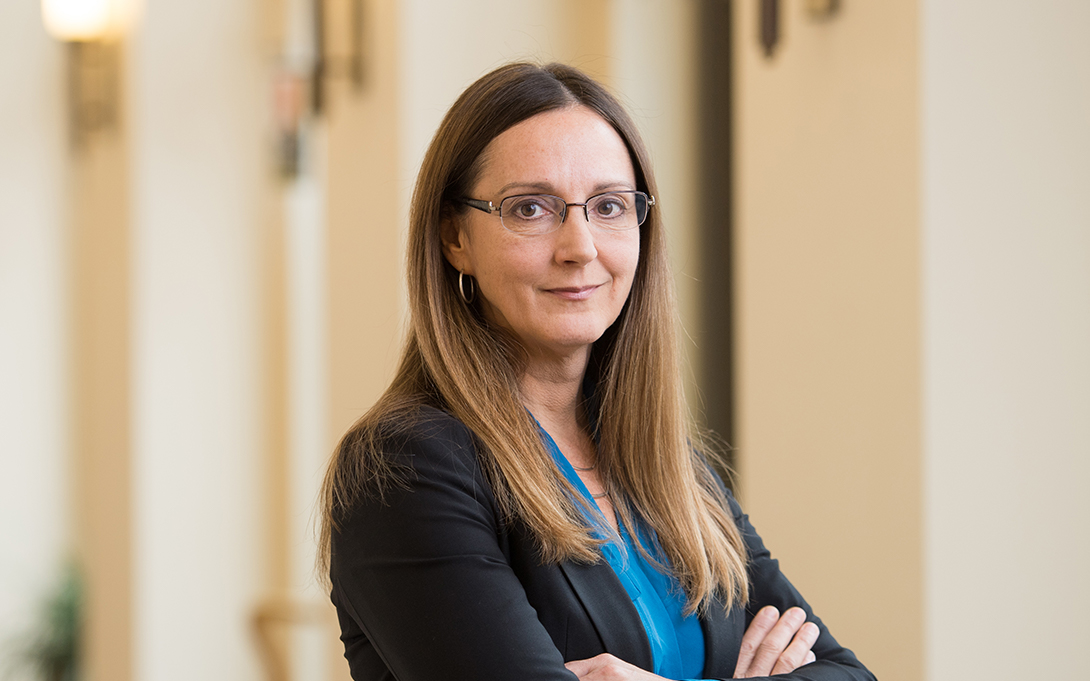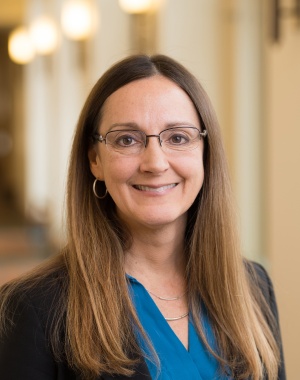
The work of associate dean Liz Gerber is among five projects being honored with the 11th annual Provost’s Teaching Innovation Prize for innovative approaches to improving student learning.
The winning projects were chosen from among 47 nominations from 13 schools and colleges. This marks the second year in a row that a Ford School faculty member was recognized with this prestigious teaching award; Megan Tompkins-Stange was honored in 2018.
After a decade of creating paper-and-pencil simulations of the public policy-making process for her courses, Gerber developed ViewPoint, cloud-based software that supports custom-designed role-playing simulations.
In application materials, Gerber wrote that role-playing simulations give students the opportunity to experience the challenges that occur when decision-makers must come to a collective decision. She said they provide students with knowledge of the issues and processes covered in the simulation, as well as soft skills like empathy, collaboration and compromise.
ViewPoint allows instructors to create custom simulations tailored to their classes, and the simulations can be built from scratch or from templates.
The tool’s facilitator features allow instructors to implement the simulation and monitor and communicate with participants. The participant feature allows learners to access simulation materials, communicate with one another, and share materials, information and feedback, according to application materials.
Graduate student Ben Eikey wrote that he saw ViewPoint in action through his participation in the Ford School’s Integrated Policy Exercise.
Students simulated being in the legislature, executive branch, and media to create a policy to reform the North American Free Trade Agreement. Through ViewPoint, Eikey wrote, legislative allies could share ideas in private messages, and a public news feed offered an opportunity for participants to deliver public news releases.
“This was an engaging, rewarding simulation and ViewPoint was essential in ensuring such a positive learning experience for so many students,” Eikey wrote.
The other recognized projects are led by Matthew Diemer, August Evrard, Anne Ruggles Gere, Ginger Shultz, Eric Svaan and Stephanie Tharp.
The university community is invited to meet the recipients at a poster fair and breakfast that is part of the annual Enriching Scholarship Conference beginning at 9 a.m. May 6 in the Michigan League Ballroom. The awards will be presented during the keynote event at 10 a.m.
“This year’s winning teaching innovations include a mix of projects that have enjoyed large-scale institutional support and newer ideas that have sprung from the ingenuity of our faculty as they develop creative approaches to teaching and promoting student learning,” said James Hilton, vice provost for academic innovation.
The annual recognition is sponsored by the Office of the Provost, the Center for Research on Learning and Teaching, and the University Library.
More information can be found here, in Safiya Merchant’s 4/26/19 article in The University Record.
